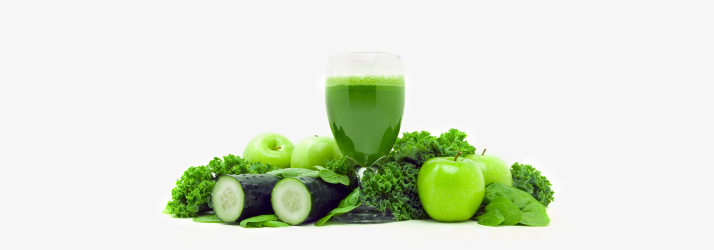Foods You Should Buy Organic (and non-organic foods that are safe to eat) in Kingwood TX

At Clark Chiropractic and Wellness, we believe that food can often be the best medicine. This often send people on a search for which foods they should buy organic, and which non-organic foods that are safe to eat.
A diet rich in fruits and vegetables is a sure-fire way to not only help combat cancer, but to aid in early prevention altogether not to mention a host of other benefits that contribute to your overall well-being in Kingwood TX.
Making the right choices concerning what you put into your body is a huge step in the right direction, but many times it must be taken even a step further. This is especially true when it comes to fruits and veggies.
Our team takes a look at both the Dirty Dozen and the Clean 15 of 2019 to help you more positively impact your diet and overall health. All food listing information is courtesy of the Environmental Working Group.
Foods With Pesticides: Should We Care Which Foods To Buy Organic in Kingwood TX?
In the last couple of decades, the public has had a renewed focus on what we're putting into our bodies. Clean eating has become all the rage, and many will go out of their way to purchase products free of GMOs and other potentially harmful ingredients.
With this comes a in-depth look at pesticides and their impact on our bodies long after we eat that delicious granny smith apple.
Think just because you're eating healthy you're in the clear? Think again! Nearly 70 percent of the produce sold in the U.S. comes with pesticide residues on them, and studies on non-Hodgkin lymphoma and leukemia showed positive associations with pesticide exposure.
It's not just fruit either that kale salad you enjoy for lunch every day may actually be the worst offender of them all! More than 92 percent of kale samples had two or more pesticide residues detected, and a single sample could contain up to 18 different residues!
It's scary stuff, there's no doubt. Fortunately, we've done the hard work for you when it comes to what you should and shouldn't be on the look-out for in your produce.
What You Should AVOID The Dirty Dozen
It's important to remember that we're not saying you should avoid these foods altogether. On the contrary, eating a diet rich in fruits and vegetables is absolutely essential for healthy living. But these are foods you should buy organic if at all possible.
What you SHOULD be aware of, is the pesticide content in these items. Nobody is telling you to completely cut out your strawberry poppyseed salads, but when it's possible to buy these items organic you should!
Without further adieu, here is the Dirty Dozen food list for 2019: Foods to Buy Organic
Strawberries: The average American eats around eight pounds of fresh strawberries a year. That comes along with a host of nasty pesticides, many of which have been linked to cancer and reproductive damage.
Spinach: This leafy powerhouse is a favorite of many, but conventionally grown spinach has more pesticide residue by weight than almost all other produce tested!
Kale: Kale is considered a superfood, but it's also supercharged with harmful pesticides. In fact, nearly 60 percent of kale samples sold in the U.S. were contaminated with residues of a pesticide the Environmental Protection Agency considers a possible human carcinogen.
Nectarines: These sweet treats aren't as harmless as they may seem! Conventionally grown nectarines were found to contain residues of at least 15 pesticides, and almost 94 percent of tested samples had at least two or more variations!
Apples: An apple a day may keep the doctor away, but too many of them may land you at the doctor's office anyway! Apples contain an average of 4.4 pesticide residues, including some at high concentrations, and many of which are already banned in Europe.
Grapes: Tiny and delicious, grapes are as bad an offender as any produce on this list. Conventional grapes tested in studies were found to have an average of five pesticides, and more than 96 percent of the tested sample included some sort of pesticide residue.
Peaches: You'd be stunned to hear the damning statistics behind peaches and pesticides. More than 99 percent (!) of peaches studied in a sample were found to have pesticide residues, and four pesticide residues were continuously found on non-organic peaches.
Cherries: A bowl of cherries here and there probably won't have you laid up in bed, but it's still wise to know what you're dealing with when it comes to these sundae toppers. Thirty percent of cherries sampled in a study were found to contain Iprodione which is a pesticide that could cause cancer, and has even been outlawed in Europe.
Pears: More than half of non-organic pears in a testing sample had evidence of five of more pesticides, including insecticides and fungicides, in higher concentrations than other produce. Pears are so bad that they're now categorized in the extreme resiudes group, so be sure to read your produce displays!
Tomatoes: The thin skin that comes along with tomatoes does a lot more harm than good, making it easy for pesticides to seep into the vegetable itself. It's not enough to just wash them either one sample of conventionally grown tomatoes contained 15 different pesticides!
Celery: It might be time to choose a different side with your buffalo wings this fall! Celery grown conventionally was found to have up to 13 pesticides on a sample, and over 95 percent of all samples tested positive for pesticides.
Potatoes: Last but certainly not least, potatoes tested in a study contained more pesticide residues by weight than ANY other crop. You may want to opt for cauliflower in the future.
What You SHOULD Eat The Clean 15 (non-organic foods that are safe to eat)
Of course, it's not fun to only talk about the things we should stay away from and the list of foods you SHOULD steer yourself towards is longer than the ones you should go without.
While the Clean 15 isn't a concrete guideline for healthy eating, it should play a vital role in helping you shape your diet without harmful pesticides. After all, more than 70 percent of Clean Fifteen fruit and vegetable samples had no pesticide residues! These non-organic foods are much safer to eat.
Avocados: Load up on the guacamole and avocado toast! Avocados are the CLEANEST food you can eat conventionally!
Corn: Less than one percent of corn studied in a sample contained traces of pesticides, so load the grill up with corn cobs and get eating!
Pineapples: While we can't confirm or deny the idea that pineapple should go on top of pizza, it's clean enough to eat conventionally whenever you want!
Frozen Sweet Peas: With cold weather on the way, we're telling you it's more than ok to fire up some split pea soup to warm your chilly bones!
Onions: This strong vegetable may make you cry, but its lack of pesticides is nothing to sob over!
Papayas: Papayas are not only sweet and tasty, but they're also perfectly fine to eat conventionally, and have been found in part to help prevent against certain types of cancer.
Eggplant: Eggplant is loaded with vitamins and minerals and also is a powerful digestive aid. Feel free to buy it in any form!
Asparagus: This strong-smelling veggie is chock full of nutrients and fiber it can even help lower your blood pressure!
Kiwis: Kiwis should be a staple of any anti-cancer diet, as they're loaded with antioxidants and fiber.
Cabbage: Cabbage is brimming with vitamins and is exceptionally high in vitamins K, C, and B6. Bok Choy and green cabbage are our favorites!
Cauliflower: The undisputed king of versatility, cauliflower is an excellent substitute for potatoes, which are much higher in pesticide content.
Cantaloupes: There's nothing better than a cool, refreshing slice of melon on a hot summer day. These tasty treats can be bought in confidence whether they're organic or not.
Broccoli: Your mother may have harped on you as a kid to always eat this fibrous green veggie, but its high nutrient count and low level of pesticide residue make it a welcome addition to any diet.
Mushrooms: Low in calories and pesticide residue, high in fiber and protein, and a great addition to any plant-based or other diet!
Honeydew Melons: The distance cousin of cantaloupe makes the perfect healthy dessert for any meal, and its conventional form is perfectly fine to enjoy in excess.
Of course, only a licensed nutrition professional can tailor a specific individual diet plan for you. The nutrition team at Clark Chiropractic and Wellness can determine your specific dietary needs and cultivate healthy eating habits with you. If you are looking for an experienced chiropractor in Kingwood TX to help, get in touch!
There is no magic bullet for a healthy lifestyle, but these lists can help guide you in the right direction. Here's to healthy eating!
Dirty Dozen & Clean 15 Food List courtesy of: https://www.ewg.org/foodnews/summary.php
OFFICE HOURS
Monday
7:30am - 6:00pm
Tuesday
7:30am - 6:00pm
Wednesday
7:30am - 6:00pm
Thursday
7:30am - 6:00pm
Friday
Closed
Saturday & Sunday
Closed
Clark Chiropractic & Wellness
562 Kingwood Dr
Kingwood, TX 77339


